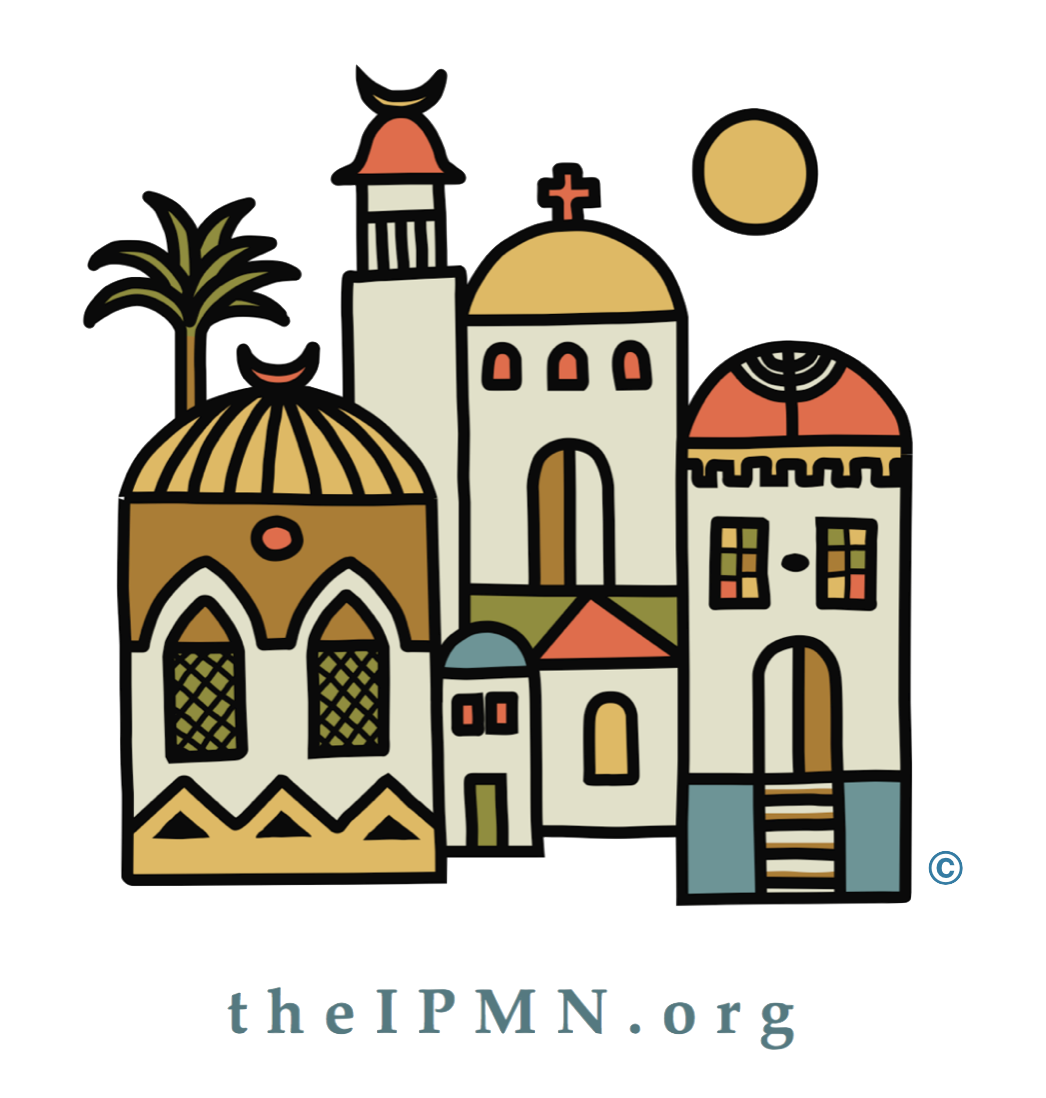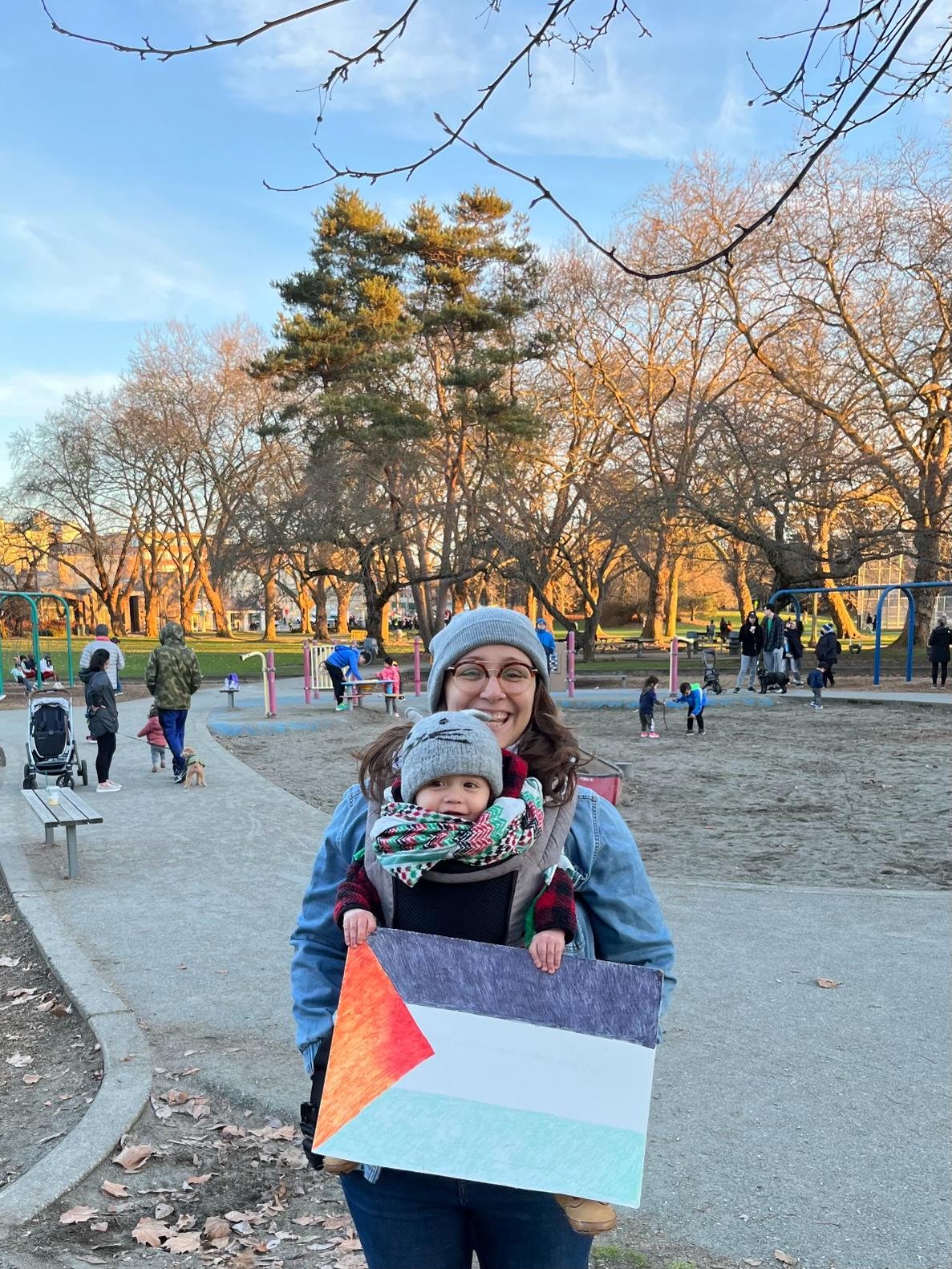Awaiting the Death of Despair
Solidarity Delegation, February 14, 2024
By, Rev. Addie Domske
Note: For the safety of our delegation members and ministry partner privacy, you’ll be receiving updates from us a few days after the events of the blogs each day. This blog is written around the happenings of Wednesday, February 14th.
Friends, I write this to you on my ordiversary! A year ago today (yes, I picked Valentine’s Day to get ordained) I was ordained as a Minister of the Word and Sacrament in the PC(USA)--a day that was years in the making. I had a lot of time to think about what ordained ministry would look for me, and today, I spent my ordiversary on multiple planes to get to Tel Aviv. Though planned swiftly and discreetly, this delegation is years in the making as well through our delegation member’s Christian commitment to just peace in Palestine. What a gift to be able to live into my ordination vows in this way.
Today is also Ash Wednesday.
A theologically rich day, Ash Wednesday begins our yearly focus on the cross as we remember Christ’s suffering and our complicity as harm doers in God’s good world. We Christians often symbolize this journey through the ritual of ashes on our forehead, reminding us that “for dust you are and to dust you will return.”
But there's more! In seminary I had a professor who would often point out that English translations of words like the “dirt” that the first human is made from and the “dust” that we are bound to return to can make us feel we are made from nothing good. It can serve to disconnect us from life and separate us from Creation. And that’s not how dirt works! It is a vital part of a resurrection cycle of creation – from death and decomposition comes new life. This professor would encourage us to look for translations into English that reminded us of being created from something creative.
Fertile topsoil.
Compost.
Rich plant food.
And like so many trips to Palestinian spaces before, this is the message we immediately received from one of our hosts, Omar Haramy of Sabeel, at our first orientation meeting today: Palestinian Christians are not Good Friday people, but Easter people. And this is how I’m holding on to hope these days. Death is all around us. I know I will soon feel even closer to it than I have for the last 120+ days as I hopelessly scrolled through genocidal images on my phone. This trip will not allow me to look away from that. But I have learned, in so many ways, that Palestinians teach life. That they have opted to turn their martyrdom and suffering into a lesson for the world on resilience and hope and steadfastness. That they have urged us to see their dust and demand that it is not the end, but instead a rich place where life will grow.
Does God want Palestinians to suffer? Nope. Not my God. But does God understand their suffering? Of course. And because of that understanding God calls us to imagine a world in which that very death and suffering is overcome. A world where Palestine is free and all of God’s people are liberated, loved, and nurtured into growth. From compost, we are, and to compost we return. What great things will grow from that soil! We believe in a God that has not only suffered, but who created life after death. Our God does not end the story at the dust, but turns dusty death into the budding flower of Easter new life.
When I don’t know what to pray around Palestine, I often look for solace in the weekly Wave of Prayers offered by Sabeel Jerusalem, one of the partners who planned this delegation. This week, it mentioned Ash Wednesday:
Crucified Christ, in this season of fasting and lament we are reminded of our mortality more than ever. As we fast, let us remember those starving in Gaza. As we place ashes on our foreheads, let us remember the Palestinians turned into dust by bombs. Lord, help us understand the message of Ash Wednesday which encourages not to be despaired from death, but to await the death of despair and suffering.
It is this idea–to await the death of despair and suffering–that brings me on this delegation. I will not wait alone and I will not wait quietly. In fact I believe I was ordained into ministry to do this work. Will you join me in this call toward liberation? There is room for you! I ask you to walk with us as we, yes, name that death is overwhelming, but also as we learn of the life that springs up from that dust through the hope of liberation. Let us be active participants in the end of despair. Consider, this Lent, what you are planting in your liberation garden.
Imagine, with me, the ritual of ashes.
Cross yourself on your forehead as you whisper to yourself:
“Remember that I am fertile soil and to fertile soil I shall return.
What seeds am I planting to grow in my place?
Amen.”
Rev. Addie Domske
Rev. Addie Domske (she/her) was rooted and raised in rural America and formed professionally in the halls of McCormick Seminary and the school of social work at University of Chicago. As of late, she has been doing ministry in exurban tech hubs like California’s Silicon Valley and the Seattle area. Addie has served nationally on the board of the PC(USA)’s Israel/Palestine Mission Network, the theology advisory board of Friends of Sabeel North America, been on the faculty of IPMN's Hosanna Preaching Project since 2016, and is a co-founding member of the national network, Presbyterians for Abolition. She has (gratefully) been to Palestine many times, but her favorite trip was leading the 2018 Keep Hope Alive trip, which was the first trip comprised of all young adults. In May of 2022, Addie and her spouse welcomed their baby, Sagan Jan-Zi Domske, into their family.


